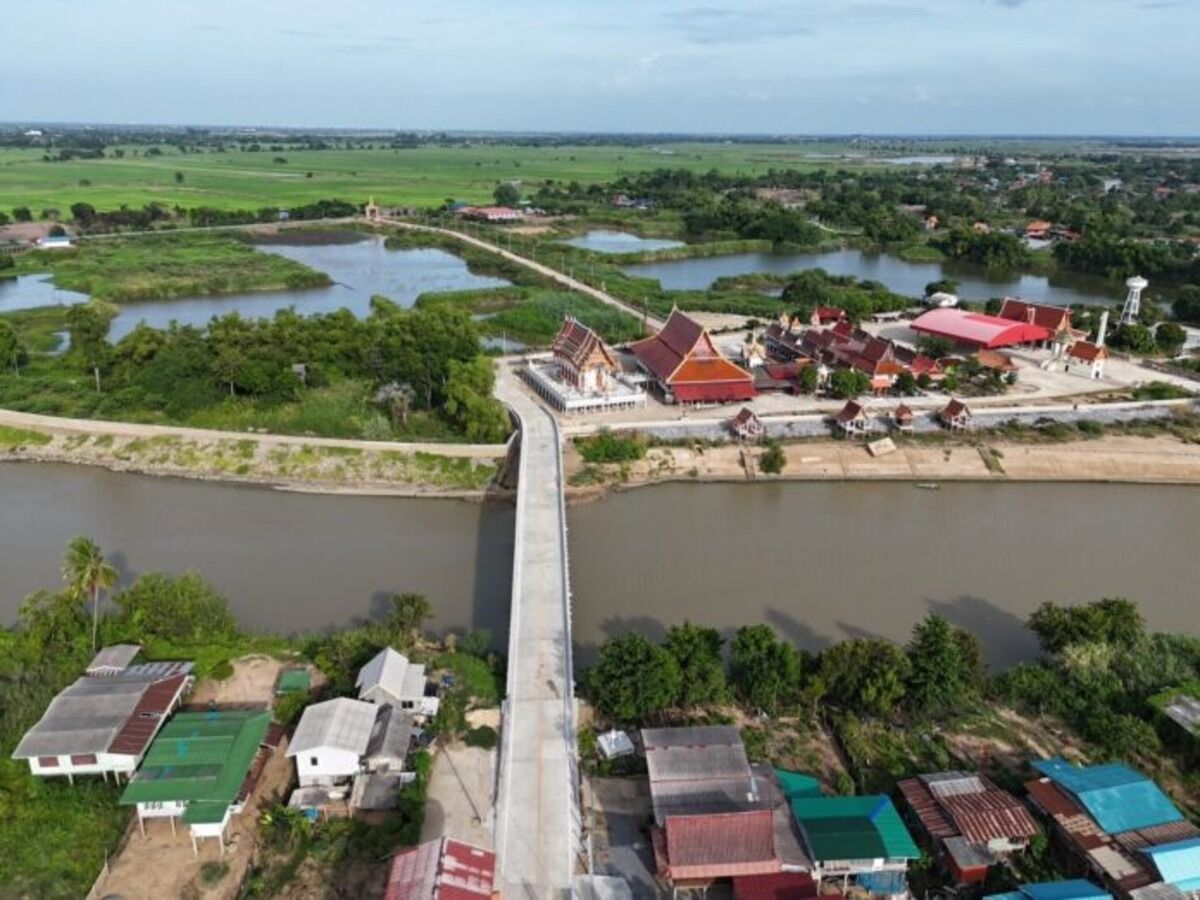New canal bridge in Ayutthaya opens to boost local travel

The new bridge over Bang Luang Canal in Phra Nakhon Si Ayutthaya has officially opened, enhancing travel for residents between the two sides of the canal to important locations. This significant development aims to improve both economic and social aspects for the local communities.
Director-General of the Department of Rural Roads Aphirat Chaiyavongnoi announced the completion of the Bang Luang Canal Bridge project in Bang Ban district, Phra Nakhon Si Ayutthaya province.
The Department of Rural Roads (DRR) has been focused on developing and improving rural road networks to connect villages, subdistricts, and districts, enhancing the quality of life for residents. The initiative also aims to make travel more convenient. The bridge project, costing 43.929 million baht, is a testament to this commitment.
The Bang Luang Canal Bridge, also known as Udom Samatiwat Bridge, is constructed with reinforced concrete and spans 117 metres. The bridge features a 7-metre-wide traffic surface, with additional 20-metre reinforced concrete roads on either side. The construction was prompted by the inadequacies of the old bridge, which was narrow and had deteriorated over time, making it unsafe for vehicles.
“The old bridge’s narrowness and deteriorated condition posed significant risks and inconveniences for daily commuters.”
With the new bridge now complete and open for public use, it significantly eases travel between the communities on both sides of the canal and to various key locations. These locations include Wat Amphawa, Bang Hak Health Promotion Hospital, and Wat Amphawa School (Wattanarat Uppatham).
The improved infrastructure also facilitates more efficient transportation of agricultural products such as rice, contributing to the economic growth of the canal-side communities, reported KhaoSod.
In related news, Thailand is set to break ground on a monumental project that will transform the region. The Twin Bridge, a massive construction project in Rantau Panjang-Sungai Golok, is expected to begin in April 2025.
Latest Thailand News
Follow The Thaiger on Google News:


























